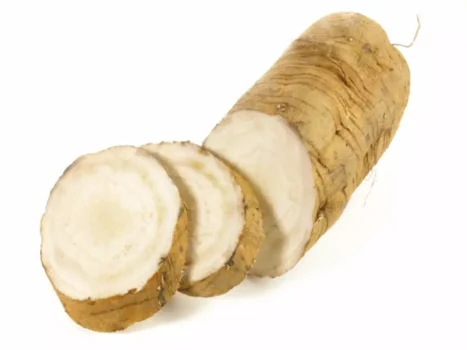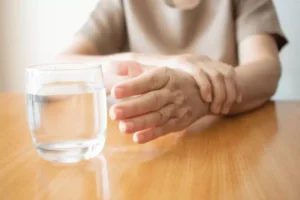
We are beginning to believe that we are capable of living in a different way. Feeling powerless makes us believe that there is nothing we can do. We don’t have the power over the obsession to drink, nor do we have the power to control how much we drink once we start. What we can do is turn to a Power greater than ourselves for help. The concept of powerlessness can seem quite foreign, especially to those from countries like America whose culture idolizes independence and raising one’s self by their bootstraps.
Thinking About Treatment?
Joi Honer directs the operations that support our alumni in their recovery from mental health and substance use disorders. Ms. Honer, who has been in long-term recovery for over 40 years, has worked in the treatment field for over 33 years. She holds certifications in addiction and co-occurring disorder counseling and a bachelor’s degree in addiction studies, having graduated summa cum laude. Although the illusion of control may continue, their lives become unmanageable, because alcohol is really in control.
You Spend a Lot of Time on Drinking
Perhaps you are familiar with the words of the Serenity Prayer, which is commonly recited at AA meetings. In our recovery programs for men in Colorado, we work on this step. One of the most significant benefits of embracing powerlessness in sobriety is finding freedom and inner peace. When we let go of the illusion of control, we free ourselves from the constant struggle to manipulate and manage every aspect of our lives.
Mental Health Services
By taking this step, you acknowledge that your alcohol use has come to a point where you cannot control it. Your health insurance provider may be able to cover all or part of the cost of inpatient and/or outpatient rehab. Those who are trying to get sober sometimes feel ashamed if they slip up and have a drink.
Of Treatment.*
- Treatments can include medication and counseling, and it may be possible for you to moderate your drinking rather than quit altogether.
- Recognizing your powerlessness over alcohol isn’t a sign of weakness but rather an acknowledgment of the addiction’s strength.
- Sometimes alcoholics keep their desire to drink secret because they’re ashamed or think that deciding to quit drinking means they aren’t supposed to be tempted.
- Untreated alcohol abuse remains a significant public health crisis in the United States, leading to devastating consequences for individuals and communities.
- This kind of thinking prevents us from looking at our powerlessness.
- The 12-step road to recovery can appear pretty intimidating to someone who is just starting out, but solutions exist.
- On the surface, this concept can make it sound as though you have absolutely no control in whether or not you recover from alcohol addiction.
These habits may include associating with certain people, visiting specific places, or engaging in particular activities that trigger cravings and unhealthy behaviors. Recognizing that these old habits and patterns have power over one’s ability to maintain sobriety is crucial. Letting go of these familiar but destructive behaviors requires a willingness to embrace powerless over alcohol change and adopt healthier alternatives. This process often involves seeking support from others, implementing new coping mechanisms, and creating a supportive environment that fosters recovery. Acknowledging powerlessness over alcohol and drugs can be liberating for many people. It frees you up to focus your time and energy on things that are within your control.
- Read on to learn more about the concept of powerlessness, what it really means, and why it’s so critical in the recovery journey.
- That anyone approaching the need to change can benefit from the 12 steps regardless of the stage of acceptance that they are in.
- When we acknowledge that we are not in control of everything, we learn to trust the process of recovery and surrender our will to a higher power or a greater collective wisdom.
- An intervention from loved ones can help some people recognize and accept that they need professional help.
Examples of Powerlessness In Sobriety List
Embracing powerlessness allows individuals to cultivate resilience, humility, trust, and surrender. Through mindfulness practices, seeking support from others, and embracing a higher power or spiritual connection, individuals can find the strength to overcome addiction and lead fulfilling lives in sobriety. Accepting powerlessness requires a shift in mindset, moving away from a place of resistance and denial towards one of vulnerability and accountability.

Step One: “We admitted we were powerless over alcohol – that our lives had become unmanageable.” (Big Book, Page
Individuals who depend on a substance cannot focus on other tasks and are consumed with their next meeting time with the particular substance. Powerlessness is a lack of decision-making control over your life. It can arise from dependence on drugs and alcohol or in workplace environments with higher-up employees and lesser subordinates.
- We are beginning to believe that we are capable of living in a different way.
- And if you end up drinking or using once sober, you have to take responsibility for that too.
- There are several effective treatment options for alcohol addiction.
How Do You Get to Step 1?

For many addicted to alcohol and drugs, it’s difficult to admit the way addiction has made their lives unmanageable. The self-awareness that comes with realizing how bad things are and how damaging the substance abuse has been is how you can start to desire a better future for yourself. At Spero Recovery, we understand how hard it can be to admit that you are powerless over the effects of drugs and alcohol on your life.
